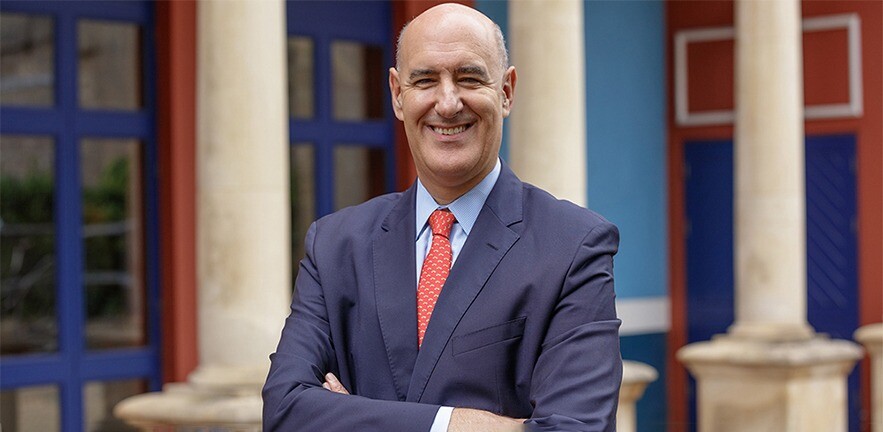At Cambridge Judge Business School we are very proud of our faculty for their teaching and research, and rightly so. We are also justly proud of another resource that enriches our teaching, research and the practical application of our knowledge creation: our terrific roster of fellows.
Cambridge Judge fellows offer both practical and academic experience
I was reminded of this by a recent mention in the Financial Times (FT) of a new book on the remarkable success of biotech startups in tackling diseases – From Breakthrough to Blockbuster – which is co-authored by Cambridge Judge Associate Professor Nektarios (Aris) Oraiopoulos, Donald Drakeman, a Fellow with both our Operations & Technology Management subject group and the Cambridge Centre for Health Leadership & Enterprise, and Lisa Drakeman, a regular guest lecturer of the Business School’s biotechnology course.
As the FT phrased it, the ‘husband-and-wife-entrepreneurs’ Donald and Lisa Drakeman “write with authority given that two of them have built successful biotech ventures in the US and Europe, raising billions of dollars in the process and creating several new FDA-approved treatments for cancer and other diseases”, while Aris has “spent years analysing the process of innovation, is an adviser to entrepreneurial start-ups and worked closely on research projects with numerous executives from the biopharmaceutical industry.”
It is this seamless melding of practical and academic experience that make our dozens of Cambridge Judge fellows such an important part of the Business School’s tapestry; put simply, they know what they’re talking about.
Another such person is Hamza Mudassir (MBA 2012), a Visiting Fellow in the Strategy and International Business subject group at Cambridge Judge and an alumnus of the Cambridge MBA programme, who is a regular contributor to many leading publications. An article he wrote about the great semiconductor famine of 2021 for The Conversation, an online publication in which academics write on timely topics, was the third most-read article from the University of Cambridge published last year in The Conversation – with most of its 337,518 reads coming through re-publication in the tech-oriented magazine Fast Company.
Cambridge Judge defines a fellow as someone who makes a significant contribution to the Business School – whether that be through collaborative research with Cambridge Judge faculty, teaching or an executive education programme.
Fellows bring a unique perspective
Fellowships and other honorary appointments at Cambridge Judge are co-ordinated by our Alumni & External Engagement (A&EE) team, whose Director Erin Hallett says: “Fellows bring a richness of experience, intellect and diversity to our Cambridge Judge community and enhance student experience. Our alumni fellows contribute an exclusive perspective from both their Cambridge Judge studies and their real-world experience that give back to the Business School in a meaningful way. We are grateful to all our fellows for sharing their knowledge, and to our alumni fellows for their lifelong connection to Cambridge Judge Business School.”
Fellows at Cambridge Judge have co-authored many peer-reviewed academic papers with our faculty members, such as an examination of how the pioneering work of sociologist W.E.B. Du Bois and educator W.C. Matney on Black economic co-operation can be tapped to benefit business education.
The study published in the journal Academy of Management Learning & Education was co-authored by:
Leon Prieto and Simone Phipps, both Associate Research Fellows at the Cambridge Centre for Social Innovation at Cambridge Judge Business School; Lilia Giugni, Research Associate at the Centre; and Neil Stott, Co-Director of the Centre and Management Practice Professor of Social Innovation.
Fellows are active teachers
On the teaching front, our fellows are active in many of our full-time and part-time degree programmes. For his part, Hamza Mudassir teaches digital disruption and innovation to Cambridge MBA students, while other fellows teaching on the MBA programme include Jack Lang, founder of the Raspberry Pi Foundation that is home to the successful credit-card-size computer, who is a Fellow of Cambridge Judge Business School’s Entrepreneurship Centre.
Other fellow teachers include David Pitt-Watson, a Fellow in Finance, who teaches to our Master of Finance (MFin) students. David was recently named Chair of a new Scottish Taskforce for Green and Sustainable Financial Services, and an MFin course he co-designed at Cambridge Judge, called Purpose of Finance, was named grand prize winner of the 13th annual Page Prize for Sustainability Issues in Business by the Darla Moore School of Business at the University of South Carolina.
There are too many more for me to name each fellow individually, but we are very grateful for the expertise and dedication all of them bring to Cambridge Judge.
What Cambridge Judge offers fellows
Yet fellowship is a two-way street, so Cambridge Judge in turn brings its own expertise and dedication to many of the 31 self-governing Colleges at the University of Cambridge through their own fellowship award systems.
For example, Associate Professor in Economics & Policy Dr Kamiar Mohaddes and Associate Professor in Organisation Theory Dr Thomas Roulet of Cambridge Judge are now Co-Directors of the King’s Entrepreneurship Lab at King’s College, where Kamiar is a fellow and Thomas is a bye-fellow.
May this enriching two-way street long continue.


